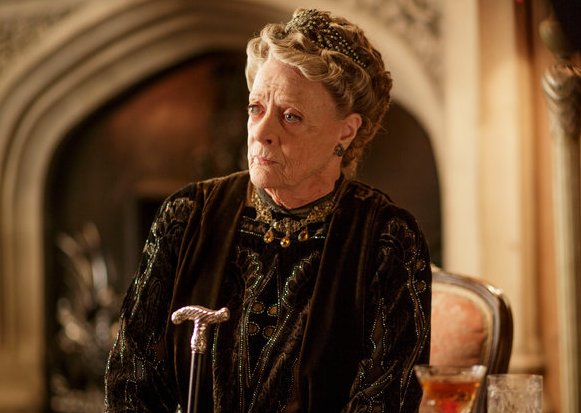By DAVE ITZKOFF Copyright 2015 New York Times News Service (via Peninsula Daily News)
LONDON — The servants’ bells at “Downton Abbey” will soon ring for their last time, the dowager countess will dispense her final piece of tart-tongued advice, and the story of the changing fortunes of the Crawley family will come to a conclusion.
On Thursday, the makers of “Downton Abbey,” the lavishly costumed and circuitously written period drama about an aristocratic British household and its domestic staff in the early 20th century, confirmed rumors that its coming sixth season will be its last.
The announcement is a bittersweet moment for the worldwide audience that has followed this serialized drama from its debut in 2010.
Its narrative was full of heartbreaking twists and turns, juxtaposing births, marriages, affairs, divorces, rape and sudden deaths with historical events like the sinking of the Titanic and the waging of World War I.
The end of “Downton Abbey” is also a significant loss for PBS, which has shown it since 2011 on its “Masterpiece” series, where it has become one of the network’s most popular programs ever. Replacing it will be a challenge.
Even so, “you can’t expect anything to go on indefinitely,” Julian Fellowes, the creator and writer of the program, said in a telephone interview. “That’s not what being a human being is about.”
Gareth Neame, the managing director of the British studio Carnival Films and an executive producer of “Downton Abbey,” said in a telephone interview that several factors contributed to the decision to end the series. (This final season, now in production, will be shown on PBS next year.)
If “Downton Abbey” continued, Mr. Neame said, its viewership would eventually decline and it would surely lose prominent cast members like Maggie Smith, who plays the acerbic dowager countess, and Michelle Dockery, who plays the intrepid Lady Mary.
While “Downton Abbey” has drawn criticism for its languid pace and drawn-out storytelling, Neame said he and his colleagues did not want to “make the mistake that so much television content does, which is to have a hit and then just keep knocking it out until it’s exhausted.”
Despite everything, the show’s ratings in the United States remained strong.
Its fifth season, which ended on March 1, drew an average weekly audience of 12.9 million viewers, PBS said, down slightly from its fourth season, which drew 13.2 million. Its Season 5 premiere averaged 15 million viewers, making it the most watched drama in PBS’s history.
Rebecca Eaton, the executive producer of “Masterpiece,” said in a telephone interview that “Downton Abbey” had been “a giant shot of vitamin B-12” for her franchise, increasing its prestige and spurring PBS to add more “Masterpiece” content to its lineup in 2015.
Pointing to other British period dramas like “Wolf Hall” (adapted from Hilary Mantel’s novels), “Poldark” and “Indian Summers,” Eaton said “Downton Abbey” had provided “the opportunity to stand on the shoulders of a giant.”
“’Oh, my God, what are you going to do now, after “Downton,”’ is the question,” Eaton said. “But how great to be in the position of heightened visibility that we are. We’ve seen this coming.”
Neame said that while the idea of a “Downton Abbey” movie was appealing, there were no specific plans to pursue this or a television spinoff involving any of its characters.
Fellowes is moving on to another period drama, “The Gilded Age,” which he is creating for NBC.
Asked if the “Downton” finale would bring closure for its many characters, Fellowes responded with a noncommittal “Eeeehhhh.”
With a laugh he added: “I think it will be a quite satisfactory ending, in the sense that things will be resolved, either one way or the other. Not that everyone will be happy, but at least a decision will have been made.”

